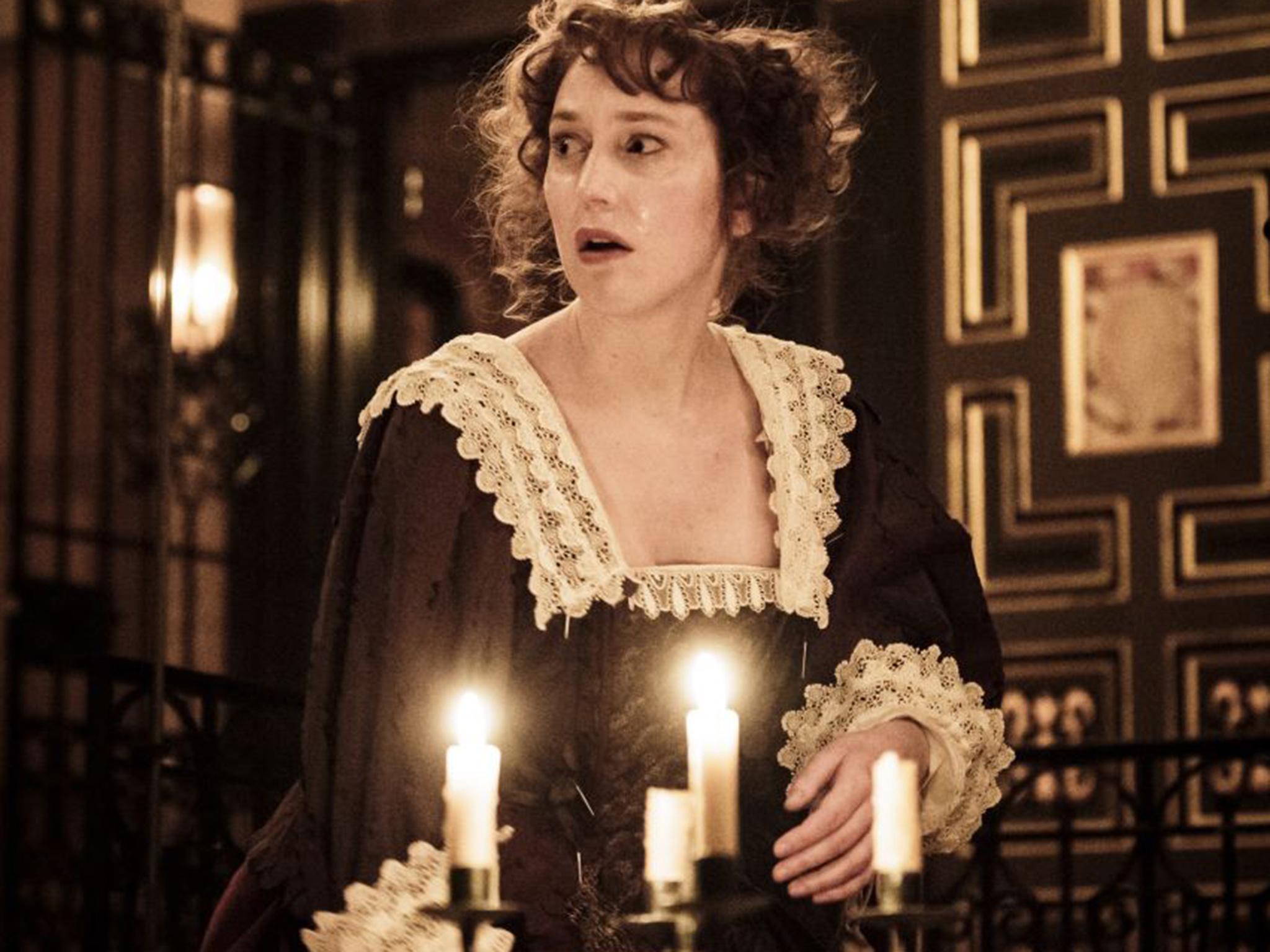The Changeling, Sam Wanamaker Playhouse, review: Morahan shines but not enough chills
The staging means the feverish pace the plot needs to carry it can evaporate

Thomas Middleton and William Rowley’s The Changeling is as much a pitch-black comedy as a tragedy, the grisly plot of murder, adultery and deceit shot through with comic business. Dominic Dromgoole’s production, nicely staged in traditional fashion at this candle-lit Jacobean-style playhouse, skilfully manages this tonal changeling – although I left without feeling any deep chills.
Beatrice-Joanna has hated servant De Flores murder her fiancé Alonzo, so she may marry another. De Flores demands her virginity as payment. The two become bound together, plotting further bed-swaps and deaths. Meanwhile, a subplot is set in a madhouse, where a jealous husband locks up his wife; she’s wooed from within by her jailor and two inmates feigning madness...
The narrative surges forward in blind haste – characters not seeing the truth of a situation, blinded by their own desires, layers of irony piling up like dead bodies.
Theatre highlights of 2015
Show all 7Hattie Morahan excellently captures Beatrice’s total self-delusion, and she’s charmingly duplicitous from the off – you can see the cogs turning behind her eyes. The audience, in on it all, get the considerable pleasure of watching someone play dumb, play dirty, play false. Morahan makes us complicit: always a hyper-expressive performer, here her gaze darts around us like a watchful sparrow. She masters Beatrice’s own changeable moods: giddiness and selfishness, lust and irritation, terror and brute survival.
Trystan Gravelle’s Welsh lilt lends a colloquial, matter-of-fact air to De Flores’ machinations. It’s very funny; he deadpans innuendo and delight alike. While it makes for a strikingly modern, clear reading, you lose a little menace. Especially given this gloomy, claustrophobic setting, it seems a slightly odd to not stoke up the sinisterness; De Lores’ much-discussed facial disfigurement is hardly horrific here, either.
Still, Gravelle’s interactions with Morahan powerfully drive the play; the scene where Beatrice realises De Flores will force her to sleep with him shows a particularly impressive, taut reversal in their power games.
Musical accompaniment comes from expressionist strings, helping to build a fraught atmosphere – which could do with being ramped up a notch further. Many of the supporting cast are less than compelling. The subplot is often cut or abridged, and you can see why – although the bone-dry, ad-libbing, scene-stealing performance by Pearce Quigley as the servant Lollio is an absolute treat.
Madhouse scenes are also problematic for modern audiences: perhaps I’m being too PC, but I found the gurning portrayals of the Bedlam inmates to be neither that funny nor poignant enough to bring a thoughtful pay-off.
This staging, with dumb shows and slow scene changes, means the feverish pace this often far-fetched plot needs to carry it can evaporate on occasion. One vignette however – showing De Flores penetrating Beatrice while Alonzo’s ghost presses up behind him – proves Dromgoole knows how to play nasty when he wants to.
To 1 March (0207 401 9919)
Subscribe to Independent Premium to bookmark this article
Want to bookmark your favourite articles and stories to read or reference later? Start your Independent Premium subscription today.

Join our commenting forum
Join thought-provoking conversations, follow other Independent readers and see their replies